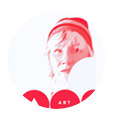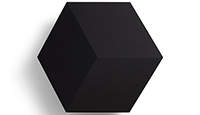Netdiver Magazine
#ISSN 1911-866X

Carole Guevin eye candy editor curator creative activist geek songwriter showcases the design digital culture.
No hype just beautiful
_______
You are fresh, you are out, you are entering the field, you are charged, you are ready to storm the industry and imprint your mark with your wits and talent! Great! I would like to share some thinking paths to munch over and pitfalls to avoid so you can successfully make it happen and avoid common mistakes befalling inexperienced designers.
Wanting to 'achieve' without taking the time it takes to learn the trade.
I know this doesn't sound too much fun; patience is a virtue that demands time and as enthused as you are this might be a complete turn off. Hear me out. You have talent; you know you have talent; you have had great grades and / or projects while completing your education that prove it... but... that is step one. Learning the trade is altogether another *education*.
You probably were exposed to either one of these two design styles as your education basis:
a) the Bauhaus school, whereas objectivity / abstract / minimalist style rules
b) the Expression school, whereas subjective / intuition / self-expression style rules.
Real life experience will demand being confronted by the myriad mix of these two different thought trends because the studio / agency where you will land your first job, will be composed of either one of these design thought schools, or a mix of both, each to a different degree of application. So, keep in mind that, learning the trade will be about being challenged to evaluate what is expected from you, to deliver. Getting hired will also be dependent on the *flavor* advocated by your new boss and how you *fit* the studio particular mix.
*Design* is preoccupied with communication and meaning:
As 'art', is concerned with content and expression
As 'science', it is the systematic presentation of objective information
As 'language', is concerned with the audience's reading or interpretation of text and content 1
So since being hired is about getting to learn the trade, the above definitions will be the grid, the template upon which you need to build your career. Needless to say - there is NO such thing as a one-fits-all-recipe. So one of your most foremost qualities will be flexibility.
You will need flexibility in adapting what you have learned to the tasks at hand. You will need flexibility in adapting what you know to tasks at hand. You will need flexibility, when learning creative processes developed by a particular studio or another. The only thing that can prevent you from growing - is to think you don't need to.
We all were newbies.
There will always be newbies.
We all need to be newbies.
Trying to jump or skip over this step is like expecting a toddler to act as a savvy and experienced CEO.
You would be the first to freak out if your boss' 10 years old was presented to you as the Art Director to which you need to report. Innately, we know that somebody of experience needs to be on top of the game. Read well - top of the game - not on top of YOU. A good tutor is one that is filled with passion (and immense patience) at wanting to turn this new grad into an empowered designer.
Experience - when looking for that 'growing' place - your new job - is the determinant quality that you are looking for from the studio. Make sure they show a true interest in training you; which will translate in a well explained agenda and objectives for you to meet; make sure 'they' have the required experience to train you.
If, you are proposed or hired to act as a senior designer while a junior… keep in mind that only your ego is flattered, and most probably you will end-up failing miserably and / or worst, being fired. You can't gap with talent, academia, passion and willpower the time it takes to acquire experience.
You come to the potential hiring studio with a diamond in the rough: your 'talent'. This is what you bring to the table, your part of the bargaining and deal. No more - but - no less.
In my experience, one of the saddest situations is the 'vanity' of talent. After too many years to mention as a designer, though I know I have 'talent' - the pressure I feel is my constant inadequacy before challenges (what I don't know) that propels me to learn, learn and learn. So talent is NOT all. Sorry.
Accept that it takes many 'cuts' to make a rough diamond into a sparkling precious gem and then, you are on the right track to succeed.
I would liken 'experience' to being the sum of numerous confrontations, which held both true and false assumptions. First of all, having experience makes you no close to perfection, as perfection is NOT attainable. Well not here on planet earth. So experience is fallible. That being said what do you think will make you *evolve* past the stage of newbieness? Well the passing on to you of others' (fallible) experience.
Ah! And you thought this was a passive process? Acquiring experience is developing an acute sense of what has or not value; or what works or doesn't; or what is a good or bad idea; or what communicates or not; what makes clients happy or not. Bottom line, experience is evolution; it is a transforming stage. You need to be extra critical yet not criticize constantly. You need to be ascertaining what has value and yet not devaluate. You need to develop value knowledge and yet not be moralistic.
Experience acquisition can be subtle and done with extreme intellectual refinement; sometimes the experience is like a leashing chard that blows you to the core, brutal, and leaves you in pieces. Yet, through these sweet and sour situations, you need to make up YOUR mind, take decisions that are in fact shaping your career. Confrontation is not subtle.
Here we are, you have now a basic canvas of values, processes, experiences and sweet and sour projects under your belt. Now if you think your newly acquired experience is enough to promote you to senior work. Attention! Hitting the wall at 100 miles / hour sign straight ahead. Why you say? Isn't acquiring experience what makes me a good designer?
Nein, no, nenni, non!!!
Yes at time, you will think you will succumb, explode or implode. Yes at time, you will want to storm right out of there. Yes at time, you will think that you are ready and know better. Wait a minute. Remember what I said earlier: "I liken 'experience' to be the sum of numerous confrontations which held both true and false assumptions."
True and false assumptions trigger an area - could even use the word arena correctly in this instance - of inner struggles. Bear it through and your newly polish and multi-faceted diamond is yours. It's the intersection stage for personal confrontations over professional issues. OUCH! These intersecting moments will teach you patience, self-control, and vision. They will transform your abilities to deal with clients' expectations, either as a senior designer, heading your own studio or as a freelancer.
It takes humility, open mind and a deep-set understanding that in 20 years from now, you might still not 'be there' and yet, knowing this, you persist.
Here are some smart questions to expect when preparing for a job interview. 2
Who are your creative idols and what is it you particularly like about their style?
What adjectives would you use to describe your work?
What adjectives would you use to describe your personality?
What is the most difficult design challenge you've had recently? How did you handle it?
What do you consider your most significant personal accomplishment?*
Can you give me two examples that demonstrate your initiative?
Describe the two most important strengths you will bring to our organization?
What are your creative and working weaknesses?
Without using names, describe two of the most difficult people you ever worked with and how you managed?
What would you like to be doing career-wise in five years?
Why should we hire you and not another candidate for this job?
_______
* Make sure you have a website where you do personal explorations. These 'out of the box breaking of all rules trying to surmount limitations of available technologies' experiments tend all to generate something new. Be relentless in pushing the boundaries.
_______
You will need quite a high level of passion, audacity, determination, and ingenuity. That, and being a bit crazy; the long hours, the constant learning, unlearning, relearning processes, the deadlines, the technology failures, the buggy code, the pressures... I mean if you want 9 to 5, security and no hassle… oops wrong career.
Design is a gift handed out without gender consideration. Hard work and determination is what makes anyone succeed.
1 The education of a Graphic Designer - Education in an adolescent profession� by Katherine McCoy - ISBN: 1-880559-99-4
2 The creative business. Guide to running a graphic design business by Cameron S. Foote - ISBN 0-393-73077-8

Essays — ethics — business of design — brain bytes — digital creative culture.
rss / ello / twitter / pinterest / soundcloud

Netdiver long-standing trademark mini captures (200 x 115 px) galleries.
Hit link -> read reviews.
_______

Vast array of drawing styles
_______

Conceptual designs standing out
_______

Products / packaging design / spaces +
_______

Brilliant storyboards / motion / vfx
_______

Some of the sharpest eyes shooting today
_______

New wave of design / interactive / mobile stars
_______

Women who rock the design scene with _more_ than pink designs

Carole Guevin eye candy editor curator creative activist geek songwriter showcases the design digital culture.
No hype just beautiful
_______